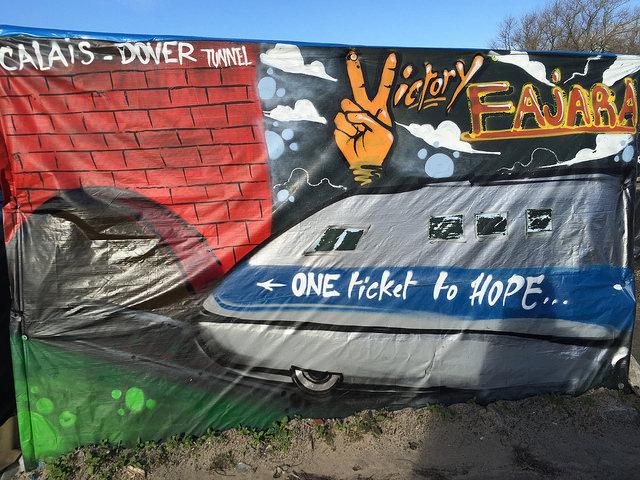
The Beat
Where there’s smoke, there’s crime
CID Gallup, a Latin American public opinion and market research company, has just released a report detailing an alarming surge in the illicit tobacco trade worldwide (PDF). The study, titled ‘From Ant Smuggling to an Elephant in the Market’, estimates US$40–50 billion in lost tax revenues globally and US$113.6 million to Central American economies. Unsurprisingly, organised crime groups like Mexico’s Los Zetas drug cartel and El Salvador’s Marabunta gang have profited. But the security threat is having an impact internationally too, with terrorist organisations such as Hezbollah and Hamas using illicit tobacco trade to finance their operations. The report concludes that greater intergovernmental cooperation and a ‘public-private sector alliance’ are needed to tackle the problem.
Money talks
Both the UN and the EU are facing renewed calls to combat money laundering and shut down tax havens. UN Independent Expert on the Promotion of a Democratic and Equitable International Order Alfred de Zayas has urged incoming Secretary-General António Guterres to host a world conference on closing off tax havens where an estimated US$21–32 trillion is held. On Tuesday at the EU, MEPs passed a non-legislative resolution urging new rules that would permit EU authorities to seize financial assets from criminal organisations. That proposed initiative closely follows the EU’s 5th Anti-Money Laundering Directive that calls for centralised bank registers and reduced anonymity of financial transactions among other measures.
CT Scan
Philippine forces get a boost in Eastern Mindanao
Amid concerns the Philippines could become a new front for global terrorist groups, the Armed Forces of the Philippines activated Joint Task Force Haribon last Saturday. An amalgamation of existing task forces and special operators, the group’s tasked with security in Eastern Mindanao, a hotspot for terror group Abu Sayyaf. A new report (PDF) from the Institute for Policy Analysis of Conflict catalogues the Daesh-linked groups in Mindanao and ties that they maintain across the region (see Dione Hogson’s take on it over at The Strategist earlier this month).
Attribution error
At least 61 people were killed in Quetta on Monday as militants raided a police training academy. Daesh were quick to claim the attack, but the Pakistani government says communication intercepts link the attack to the jihadi group Lashkar-e-Jhangvi (LeJ). LeJ denied having direct links to Daesh, but later said that the two groups cooperated in carrying out the attack. LeJ is known for its anti-Shia sectarian violence, and many of its members were killed by Pakistani security forces throughout 2015 counterterror operations, including the group’s chief, Malik Ishaq. Daesh also claimed responsibility for the August suicide bombing in Quetta that killed at least 70 people, but analysts widely believe another Pakistani group, Jamaat-ul-Ahrar, to be the culprit. Check out this report (PDF) by Tariq Parvez, the first national coordinator at the National Counter Terrorism Authority in Pakistan, which lists the activities of Daesh in Pakistan since 2015.
Last, The New York Times has an interesting read on Germany’s dependence on US intelligence for counterterrorism operations.
Checkpoint
Calais ‘Jungle’ is no more
On Monday, French workers began demolishing the Calais’ ‘jungle’ migrant camp. Flanked by police escorts, the workers set about dismantling tents and makeshift shacks while the former residents were cleared out and bused to shelters across France. The migrants, who hailed from conflict ridden countries in Africa and the Middle East, had hoped to gain entry into Britain via the English Channel. UK Home Secretary Amber Rudd maintains that ‘responsibility for Calais lies with the French government’ but has also pledged £36 million for the cost of the camp clearance and to shore up border security. Calais Mayor Natacha Bouchart has expressed scepticism over the permanency of the solution, adding that migrants are still arriving and a regulatory framework is required to prevent new camps from being established in Calais.
Kashmir troubles (ain’t no denyin’)
Last month’s Uri raid continues to fuel tensions and minor skirmishes between India and Pakistan in the disputed Kashmir region. Cross-border firing and shelling has claimed lives on both sides and prompted bitter recriminations from Indian and Pakistani leaders. On Monday, a senior BJP leader led a five-person delegation to meet separatist leaders to discuss Kashmir’s ongoing civil unrest, however no firm details of the meeting emerged and the BJP’s National Secretary was quick to deny official party involvement.
First Responder
Daesh damning the environment
As the fight for Mosul continues, retreating Daesh fighters have amped up their campaign of industrial sabotage. The group’s set fire to oil fields throughout the battle, as well as the Mishraq sulphur plant south of Mosul on Saturday, sending toxic plumes over coalition positions. Analysts are concerned about the potential environmental and humanitarian impacts of Daesh’s sabotage campaign. Check out Wim Zwijnenburg’s excellent piece of analysis for Bellingcat that tracks the vulnerabilities of key facilities in Mosul, including the oil industry, industrial sites, and critical pieces of infrastructure such as power plants and water treatment facilities.
The future of the Arctic
The Atlantic Council hosted a conference on 25 October looking at the under-explored implications of climate change for Arctic strategy. The conference, titled ‘Geopolitics, Security and Energy in the Arctic’, brought together prominent national security officials to discuss challenges and opportunities posed by the opening up of the Arctic region. The participants provide some interesting takes on the challenges of operating in the Artic environment, US military posture in Alaska and competition over resources and access. Check out footage of parts one and two of the conference for some more in depth analysis.